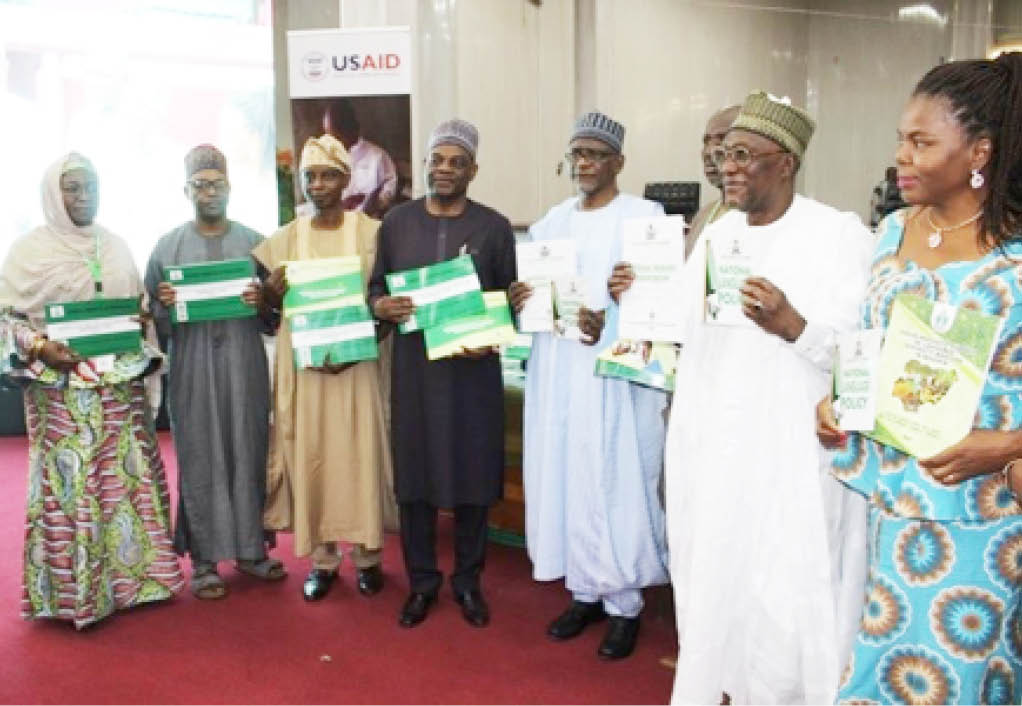The federal government’s policy of using mother tongue for teaching in primary schools is yet to take effect one year after it was introduced, Daily Trust on Sunday reports.
The Federal Executive Council had, in 2022, approved the National Language Policy (NLP) making the various mother tongues a compulsory medium of instruction from primary one to six.
The then Minister of Education, Adamu Adamu, had noted that the policy would take immediate effect.
Adamu had stressed that the policy could only be fully implemented when instructional materials were developed and qualified teachers available.
- Minimum Wage: Flight Disruptions, Fuel Scarcity, Darkness Loom As Labour Mobilises For Strike
- FG rescues 61 stranded Nigerians in Chad after Air France technical issue
During the flag-off of the National Language Policy on May 25, 2023, Adamu, had said the objective was to promote the teaching and learning of reading in Nigerian languages at the basic education level and beyond.
Also, the Executive Secretary of the Nigerian Educational Research and Development Council (NERDC), Prof. Ismail Junaidu, said the policy was to promote and preserve Nigerian languages.
The Secretary-General of the Organisation of Educational Cooperation, Sheik Manssour Bin Mussallam, who visited Nigeria in March 2023, had called on Nigeria and other member states to revive indigenous languages and save them from extinction.
He had commended Nigeria for becoming one of the first member states of the OEC to take steps towards fulfilling the commitment taken within the Universal Declaration of balancing inclusive education of ensuring the mother tongue education as an essential component of equitable social development.
Parents, pupils await implementation
Khalisa Alto, a mother of five in Katsina, said when the new policy was announced, parents were excited.
“But then, we thought teaching with the Hausa language will start in earnest, but here we are still waiting and our children are actually facing challenges,” she said.
Her son, Abdullahi, a primary three pupil, said he relied on his brother in secondary school to understand some of the things he was taught in school.
“It is Huzaifa who translates some of the subjects in Hausa…I hope they would be teaching us in our local language,” he said.
In Bauchi, a teacher, Musa Abdullahi, said even though it was not allowed, sometimes they had to translate issues in Hausa for the pupils to understand.
“The essence of teaching is for students to understand. Therefore, when the new language policy was announced, we were excited,” he said.
A pupil, Jamila Aliyu, said she was eager to start learning in Hausa.
“I love English language, but I would be glad to be taught in Hausa for now,” she said.
A parent, Sidney Ogririga, said if children were taught in their mother tongue, they would do much better because familiarity with the native language helps in better learning outcomes.
Ogririga said: “Students face difficulties while learning new things in a foreign language. Instructions in their mother tongue help them visualise and develop a better understanding of the subject taught in the classroom.
“Children should be taught in their native language as it does not disrupt their cognitive abilities, but offers them an opportunity to get introduced with social and cultural identities”, said Ogiriga.
For Abdullahi Doko, an educationist, teaching children in their local languages will offer several advantages such as better comprehension, cultural connection, confidence and participation as well as academic success.
He said children understand concepts more quickly and thoroughly when they are taught in a language they are familiar with.
Doko noted that research suggested that children who receive early education in their mother tongue tend to perform better academically in the long term, including in other subjects and languages.
“Learning in a familiar language can reduce anxiety and help children feel more at ease in the classroom. Overall, teaching a child in their local language can lead to a more positive and productive educational experience,” he said.
Another parent, Abdulhamid Yunus, said: “English is not our first language and the complexity of it all makes learning somewhat difficult for early learners.
“We have children who finished primary six and cannot read a simple sentence nor solve simple mathematics. This is simply because of the confusion in use of English; I believe some of these children would have done better if they were taught in their mother tongue”, he said.
He urged the federal government to fast track implementing the new policy.
A former teacher, Victor Umoh, said: “I believed that the challenge of quality education we face today would not have risen if we had not allowed foreign languages to rule over our education system. Students would do better if local languages are used in school.”
Why Nigeria needs to implement NLP – Don
A professor of Education Leadership Development, Salihu Ingawa, said before the British came, using the indigenous languages in elementary schools was the easiest way to learn.
He said a child learns from home with his mother as the first teacher.
“They (the British” enforced the foreign language on our children and when they speak the local language, they get punished and we accepted that because they said you have to be fluent in English to be a public servant,” he said.
“If they had allowed the use of traditional language, students would have done excellently better than they are doing today because that language with which you started learning,” he said.
Ingawa said it should not be difficult to implement the National Language Policy because tertiary institutions in the country “have programmes for language teachers, especially in the three traditional languages of Hausa, Igbo and Yoruba.”
It is a gradual process – NERDC
When contacted to comment on the perceived delay in the implementation of the policy, the Director of Press of the Nigerian Educational Research and Development Council (NERDC), Dr Chima Egbujo, said the implementation had gradually commenced.
According to him, it takes some level of sensitization “because this is the first time Nigeria is having an elaborate language policy.”
He said: “It is not expected to take off immediately. So, we have developed an implementation guideline and have also commenced the sensitisation of stakeholders. It is a gradual thing and we will take it in pieces until it takes its full course in all phases of the national economy as intended.”
On the timeline for the policy to take its full course, he said there are segments of the policy.
“But as it is in the education sector, so many things are happening. For example, we are supposed to use it as the national and local languages, as language of instructions up to primary six, but we’re already up to primary three. So, it is just to take it up to primary six.
“It is now a transition and that will take some steps. So, we need to have the necessary materials developed to support the teaching of the languages,” he said.

 Join Daily Trust WhatsApp Community For Quick Access To News and Happenings Around You.
Join Daily Trust WhatsApp Community For Quick Access To News and Happenings Around You.


